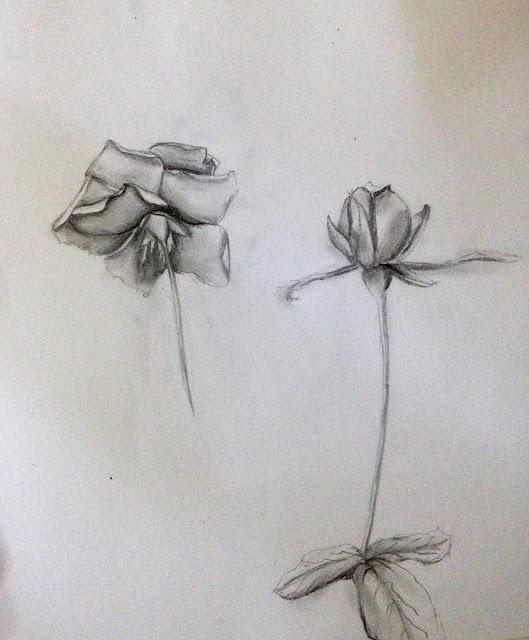'Education, like faith, is the evidence of things not seen...' so Charlotte Mason said.
Educating my own children has been an act of faith in many ways. Sometimes you just have to be patient and wait for the fruit of what you're doing to show itself. Education requires discipline, time, energy and perseverance. It's not an overnight venture. Sometimes I need to remind myself to:
'...stand firm. Let nothing move you. Always give yourselves fully to the work of the Lord, because you know that your labor in the Lord is not in vain.'
1 Corinthians 15:58
With the above in mind, here are some of the areas I've been seeing fruit in and where education is something my daughter is pursuing of her own accord:
The Discipline of Regular Drawing Practice
Nature notebook - this is now a regular & self-initiated habit after many years of having it as part of our weekly schedule:
Our current read-aloud (some editing required) - Natural History from the point of view of a ten year old boy living on the island of Corfu just prior to the second world war and a peek into a living education - we're enjoying this so much!
'With the summer came Peter to tutor me, a tall, handsome young man fresh from Oxford, with decided ideas on education which I found rather trying to begin with. But gradually the atmosphere of the island worked its way insidiously under his skin, and he relaxed and became quite human. At first the lessons were painful to an extreme: interminable wrestling with fractions and percentages, geological strata and warm currents, nouns, verbs, and adverbs. But, as the sunshine worked its magic on Peter, the fractions and percentages no longer seemed to him an overwhelmingly important part of life and they were gradually pushed more and more into the background; he discovered that the intricacies of geological strata and the effects of warm currents could be explained much more easily while swimming along the coast, while the simplest way of teaching me English was to allow me to write something each day that he would correct...'
Gerald Durrell
Last week we had exams for Year 6, Term 2. I asked Moozle to write a poetic narration about
Antony & Cleopatra:
On a roll with her drawing of roses
Weather report, with some artistic license
Handiwork - scrapbooking has been all the rage. This is something all my girls have enjoyed but I prefer working with fabric and haven't shared their activities in this area. Fortunately, they have an Aunty who enjoys scrapbooking and when Moozle started showing a interest in scrapbooking as her older sisters had done, Her Aunty started paying her in scrapbooking paper to wash her car.
This week Moozle had her first 'consignment.' A lady at church asked her to make up an assortment of gift cards, which she paid for and then said that she would act as her 'agent' and drum up some business. Moozle is excited because now she can go out and buy more supplies!
A couple of tags she whipped up this afternoon
"I'd like to add some beauty to life," said Anne dreamily. "I don't exactly want to make people know more...though I know that is the noblest ambition...but I'd love to make them have a pleasanter time because of me...to have some little joy or happy thought that would never had existed if I hadn't been born."
Lucy Maud Montgomery
Listening to this when we're driving
Moozle's free reading
The Secret Adversary by Agatha Christie - this is the first book in the Tommy and Tuppence series, which I let my children read when they are about 12 years of age. (Free online here) I leave Christie's other books for a later stage but this series is fun and a good introduction to the crime novel. Partners in Crime is another in the series she's been reading.
* Children learn from real things in the real world
* We train a child to have good habits and self-control
* The mind needs ideas of all kinds, so the child's curriculum should be varied and generous with
many subjects included.















